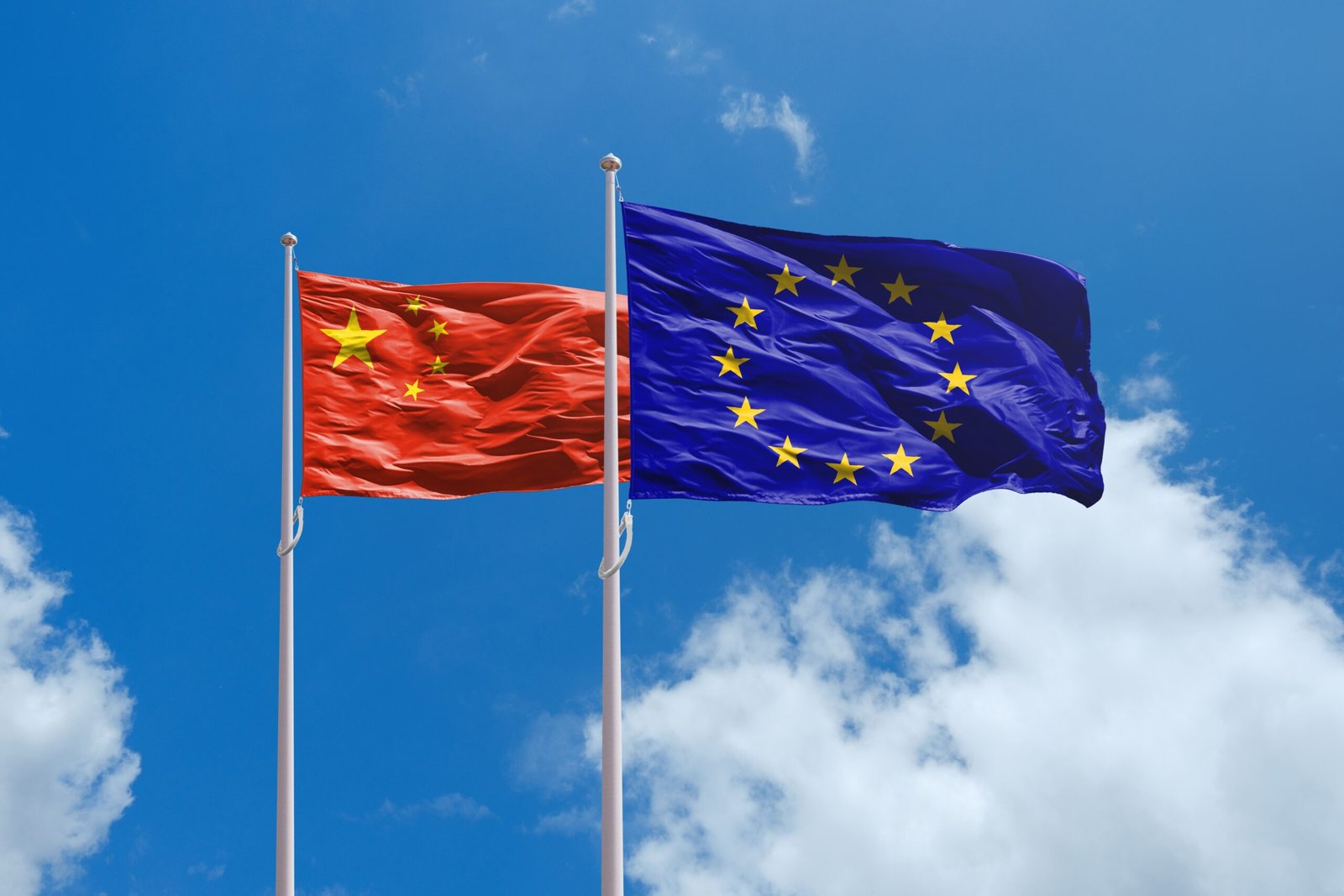The European Union has expressed its intention to de-risk its relationship with Beijing, but could a victory for Republican candidate Donald Trump in the upcoming election pressure the bloc to adopt a tougher stance?
Recent polls indicate a tight race between Trump and Democratic candidate Kamala Harris ahead of the November 5 presidential election, prompting Europe to prepare for various potential outcomes.
Experts consulted by Euronews suggest that a Trump win could lead to increased unpredictability, reduced cooperation with global allies like the EU, and heightened trade tensions with China. Ceren Ergenc, a research fellow at the Centre for European Policy Studies, noted that Europe should anticipate more tariffs, sanctions, and pressure to sever ties with China, albeit with differing implementation styles from each candidate.
“The Harris administration would likely adopt a more institutionalized approach, while a Trump administration would be more personalized in its actions,” Ergenc explained.
Trump has previously threatened to impose tariffs on European imports, questioned NATO commitments amid Russian aggression, and hinted at cutting U.S. support for Ukraine. His views on China, however, remain less consistent, with mixed statements on Taiwan and the Chinese leadership.
In a recent Fox News interview, Trump stated, “There’s no greater critic of China than me,” while also mentioning his respectful relationship with President Xi Jinping, suggesting a potential for future cooperation.
Conversely, Harris has consistently reaffirmed U.S. support for Taiwan and has been more vocal about human rights issues in China. According to Francesca Ghiretti, research director at RAND Europe, a Harris presidency would likely continue the Biden administration’s strategy of increased coordination and alignment with allies, albeit with some challenges in achieving consensus.
Mario Esteban from the Elcano Royal Institute suggested that while U.S. policy may not directly alter the EU’s human rights stance, it could lead to greater isolation for the bloc and economic repercussions. “A Trump administration could prioritize economic protectionism over geopolitical concerns,” he noted.
Additionally, Trump’s skepticism toward climate initiatives could bolster the positions of European critics of the EU’s green agenda.
In response to potential election outcomes, the European Commission has established a task force to assess the implications for EU-China relations, particularly amid escalating tensions between Beijing and Washington. Since Trump’s initial election in 2016, U.S.-China relations have soured, adopting a “small yard, high fences” strategy that restricts certain technologies while maintaining economic exchanges.
However, China remains the EU’s second-largest trading partner, complicating any efforts by Brussels to adopt a more aggressive posture, even under U.S. pressure. “Resistance from various EU stakeholders is expected, as there is no consensus on whether to decouple from or merely de-risk the relationship with China,” Ergenc said.
China’s role has evolved as both an economic competitor and a systemic rival to the EU, creating a complex interdependence. Alicia García Herrero from the Bruegel think tank stated that a Trump victory might prompt some European nations, particularly Germany, to seek improved relations with China, while others would pursue greater strategic autonomy.
In 2023, the EU recorded a €292 billion trade deficit with China, heavily reliant on imports of telecommunications equipment and electrical machinery.
